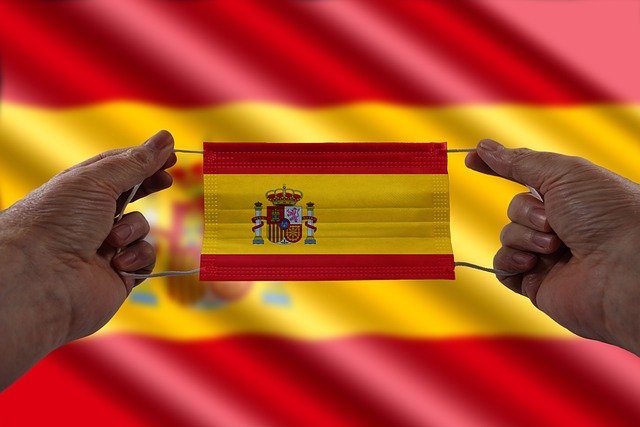Deciding on where to live
Some people deciding to move to Spain don’t actually know where they want to live in Spain and often ‘try out’ several different regions or cities before they decide on the one they want. It was not uncommon to try out Valencia for a month and then move to Barcelona or Madrid for the next month to see which they preferred. In Covid-19 times however, this isn’t possible, so you need to be sure about which city or area you want to live in.
Many regions across the country have closed their borders and even the borders between their municipalities, so simply hopping between cities and regions won't be possible.
Finding accommodation
Finding accommodation might actually be the one thing that is easier in Covid times than in normal times. Because of the lack of tourism this year, many accommodation options that were Airbnbs or holiday lets had to be put on the regular rental market. This drove prices way down and also meant that there was a lot more availability. This is good news, especially in over-touristed and expensive cities such as Barcelona. Earlier this year, Barcelona's mayor told citizens to “Rent out empty flats or I'll repossess them“. Here's everything you need to know about renting an apartment in Barcelona and in Madrid.

Becoming a legal resident
Citizens of EU countries, now excluding the UK, need to apply for an NIE number in order to become a resident. There are several ways to get a NIE card, such as proving that you’re going to buy a house, proving that you have a job offer or showing that you have private health insurance and enough funds to support yourself. Here's everything you need to know about how to get an NIE number.
Those moving from outside the EU or from the UK will need to apply for the TIE card, which you can find out all about here.
Traditionally, the process of getting a NIE or a TIE has been difficult and appointments were very hard to come by. In times of Covid-19, getting an appointment has become even more difficult with limits of numbers of people in the offices and many residents from the UK trying to change their NIE for a TIE. We suggest to start trying get an appointment before you even arrive in the country, or alternatively paying a company here who can get an appointment for you and help you navigate the process.
Employment
Before you decide to move to Spain, you need to be aware that unemployment is very high right now, particularly due to the Covid crisis. Unemployment currently stands at around 16 percent, one of the highest levels in the EU. Therefore, getting a job during Covid times is going to be very difficult. If your plan is to get a job when you get here, then you need to be aware that it could take you a very long time, so you need make sure you have funds to support yourself for at least four to six months.
The best option right now is to move with a job offer already in place, have a remote job you can do from anywhere, or have clients in your home country, who you can continue working for. In the situation of the latter, you will most likely have to sign up to the Spanish autonomo or self-employed system so you can be legal and pay taxes here. You will also need to speak to a gestor or a lawyer to find out the tax implications of having a remote job.
Schools
If you’re moving with your family and have little ones in tow, you should know that despite all the current restrictions, closures and curfews, schools remain open. Kids over the age of five will be required to wear a mask and teachers have to wear them too, so it’s good to keep in mind that your kids might find it very challenging to start school during this time, especially if they’re trying to learn a new language and the same time and can’t see peoples’ mouths moving and often hear muffled words.
Like many countries, Spain closed its schools for several months during the spring and early summer, and while a return to the closures and online lessons are not on the cards currently, it’s best to keep in mind that this could be a possibility if the situation gets worse over the winter. This means that you need to be prepared to stay at home all day with your kids and put plans in place, should that situation occur.

Image:Alexandra_Koch/Pixabay
Making friends and discovering your new home
Making new friends could prove challenging during coronavirus times and perhaps take longer than usual. While some people might be happy to meet new faces, you’ll find that many people simply won’t risk it right now. Many clubs, expat groups and sporting activities have been cancelled, so your opportunities to meet new people might be diminished too.
Bars and restaurants have been forced closed across many regions and curfews remain in place, so there will be less chances to meet or socialise with people, as well as exploring and getting to know your new home. Find out all the latest restrictions in place here.
Confinement
Spain had one of the strictest lockdowns in the whole of Europe, where people weren’t even allowed to leave the house for walks or exercise for around two and half months. The authorities have said they are unlikely to do this again, but it's not off the table. The situation could change and home confinement could become a real possibility again.
The situation was very hard on everyone and had a big toll on mental health. If you’re thinking of moving to Spain soon, you need to be aware how home confinement could affect you and your family and if you really want to put yourselves through that. If possible, you may also want to think about getting an apartment with a terrace or a house with a garden, so you’ll have access to some outdoor space, should this happen again.



 Please whitelist us to continue reading.
Please whitelist us to continue reading.
Member comments